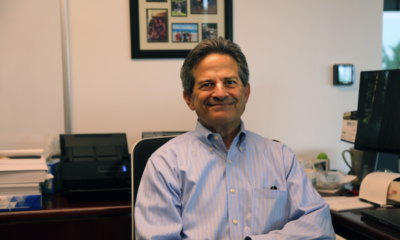2024 election
Chandler House Race Results: A Key Battle for Party Control!

A fiercely competitive election in Arizona’s Legislative District 13 is set to shape the future of the state House of Representatives for the next two years. With both parties investing heavily, the stakes are high as they vie for two pivotal seats that could tip the balance of power in the chamber.
This district, which spans parts of Chandler, Gilbert, and Sun Lakes, has historically leaned Republican. However, the Independent Redistricting Committee marked it as highly competitive while redrawing legislative maps in 2021. Currently, Republicans hold a slender one-seat majority, and a Democratic victory in both races would shift control for the first time in nearly six decades.
Democrat Jennifer Pawlik, who has held one of the district’s seats since 2018, has opted not to seek reelection. On the Republican side, Julie Willoughby, appointed in May 2023 after the expulsion of Liz Harris, aims to maintain the party’s grip on her seat. Willoughby faced challenges in prior runs for the House, losing in both 2018 and 2022.
Willoughby’s campaign now sees her teaming up with former state representative Jeff Weninger, who previously held the seat Willoughby occupies. Together, they face Democratic contenders Brandy Reese, a former forensic scientist, and Nicholas Gonzales, a community planner.
Recent campaign finance reports indicate a significant fundraising advantage for the Democrats. Reese has raised $318,637, while Gonzales secured $251,590. Conversely, Weninger and Willoughby lagged behind with $133,713 and $122,368, respectively. The landscape shifts even further when factoring in external spending, with outside groups pouring over $1 million into supporting Democratic efforts, compared to more than $609,000 bolstering Republicans.
Reese remains optimistic about her chances, emphasizing her outreach to independent voters, who constitute a substantial portion of the electorate. “I’m definitely going to win,” she stated confidently, indicating that voter concerns have shifted from reproductive rights to economic issues and education.
The Democratic duo both back the Arizona Abortion Access Act, which aims to enshrine abortion rights in the state constitution. Their Republican opponents, however, have stood firm against repealing the state’s existing abortion restrictions.
Weninger, a longtime East Valley restaurateur, has positioned education as a top priority. He advocates for increased funding and school choice while acknowledging the need for future workforce preparation. Critics argue that the current Education Savings Account (ESA) program diverts public funds to religious schools, a contentious topic among voters.
On economic fronts, Gonzales emphasizes affordable housing, aiming to streamline construction processes to address pressing housing shortages. Willoughby is focused on infrastructure improvements to support Chandler’s growing tech industry.
Public safety is another crucial issue for candidates. Willoughby has championed legislation addressing artificial intelligence’s potential dangers, while Gonzales aims to ensure proper funding for local law enforcement. Both seek to foster a safe environment within their communities.
As the election looms, several controversies have surfaced surrounding the candidates. Gonzales faces scrutiny for a past misdemeanor conviction related to false reporting against his former partner. Meanwhile, Willoughby has been implicated in misleading media narratives regarding her position and endorsements.
This election is transforming into a vital battleground, with implications far beyond the East Valley. Candidates contest not only for local seats but also for broader control of the Arizona House, highlighting the intense political climate leading up to November.

















